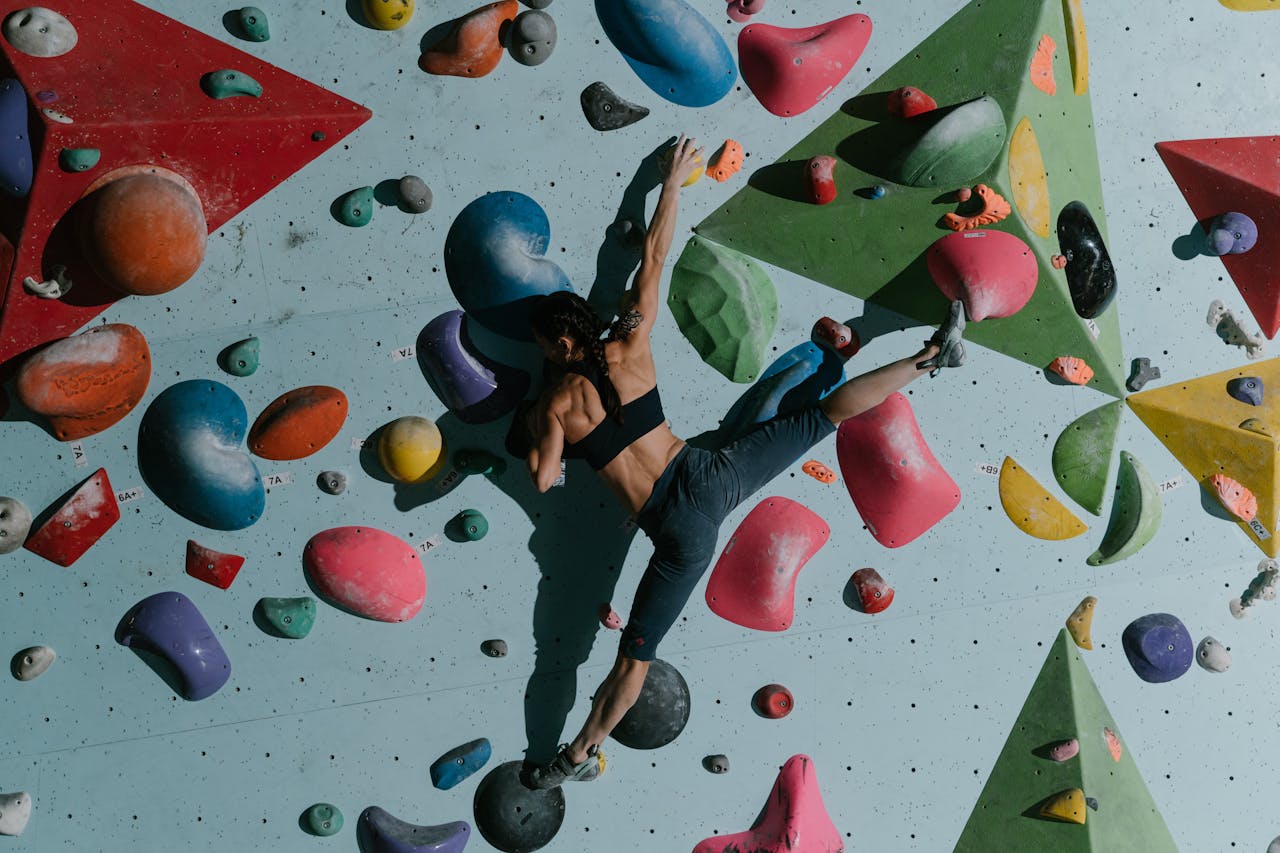Are you looking to level up your bouldering? Every climber knows the struggle of hitting that grade plateau, which can be soul-crushing. You can’t seem to break into that next number grade!
Yet, the joy and satisfaction of overcoming these challenges are unparalleled. You might feel like you’ll never improve and that you’re destined to climb the same grades your entire life. But with the right guidance and determination, you can break free from this plateau.
If this sounds like you, check out these six tips to level up your bouldering. Stay consistent, and the progress will show itself!

1. Get Comfortable with Falling
You’re going to do it. Every climber does; it’s just part of the sport. You may as well get good at it. Not only will getting comfortable with falling help you stay injury-free, but you’ll also be able to push your limits.
Practice falling until you feel comfortable enough to put yourself in precarious positions higher on the wall. The more you fall, the more you’ll understand how to move your body when you’re hurling toward the ground.
2. Practice Bouldering Techniques
Go to the gym with the sole purpose of training your technique. Sure, it isn’t the most glorious of climbing sessions, but to improve at something, you must be willing to practice it!
Climb up and down a boulder problem as often as possible while flagging until you feel comfortable doing it. Learn the different types of flags, back flag, inside flag, and lower flag, and when to use them.
Eliminate footholds and make the climb harder to force yourself to flag more.
Do this same exercise with smearing! Pick a slab section of the bouldering area and practice smearing on footholds. When this feels doable, practice smearing on the wall itself!
3. Trust Smaller Feet
One thing many climbers need help with is trusting their feet on smaller holds. Understandably, it seems unthinkable to be able to stand on that. But the more you practice standing on foot chips, and what feels like nonexistent holds, the more you’ll level up your bouldering.
Choose some tiny holds near the ground and pull yourself onto the wall. Work on shifting your weight around and trusting your foot will stay on. With some practice, you’ll feel more comfortable standing on smaller footholds the higher you climb.
4. Cross-Train
If the grade plateau is hitting you hard and you need to be stronger to improve, consider cross-training. Most gyms have a weightlifting section for training, and it is the perfect place to frequent if you’re serious about getting stronger.
Perform workouts that directly translate to climbing, and consider starting a hangboard routine to strengthen your fingers! Remember to target that antagonist muscle (the opposite muscle you use for climbing) to combat possible muscle imbalances.
5. Take a Class!
If you need help figuring out where to start, take an intro class at the gym! Here, you can learn all about bouldering techniques and what they should feel like on the wall.
An instructor can help correct your form and inform you how to move more efficiently while climbing. You may need help understanding what you’re doing wrong if you’re a beginner. Hence, getting instruction from another climber is a sure way to help you level up your bouldering.
6. Reading Problems
If you look around any bouldering gym, you’ll likely see climbers making funny hand signals at the wall like they’re trying to communicate with the holds telepathically. These signals are part of a process called reading the boulder problem, where climbers plan their route before they start climbing.
Reading a boulder problem involves imitating the moves you must make before you hop on the wall. As you learn more techniques and how to move your body, you’ll understand what it takes to put yourself in different positions on the wall before you touch any holds!
These 6 tips can help you level up your bouldering and break through that grade plateau. Just doing these once isn’t enough, though. To truly see progress, you need to stay consistent.
While climbing may come naturally and bring you back to childhood, many nuances can help you climb more fluidly. So go easy on yourself; climbing is hard!

